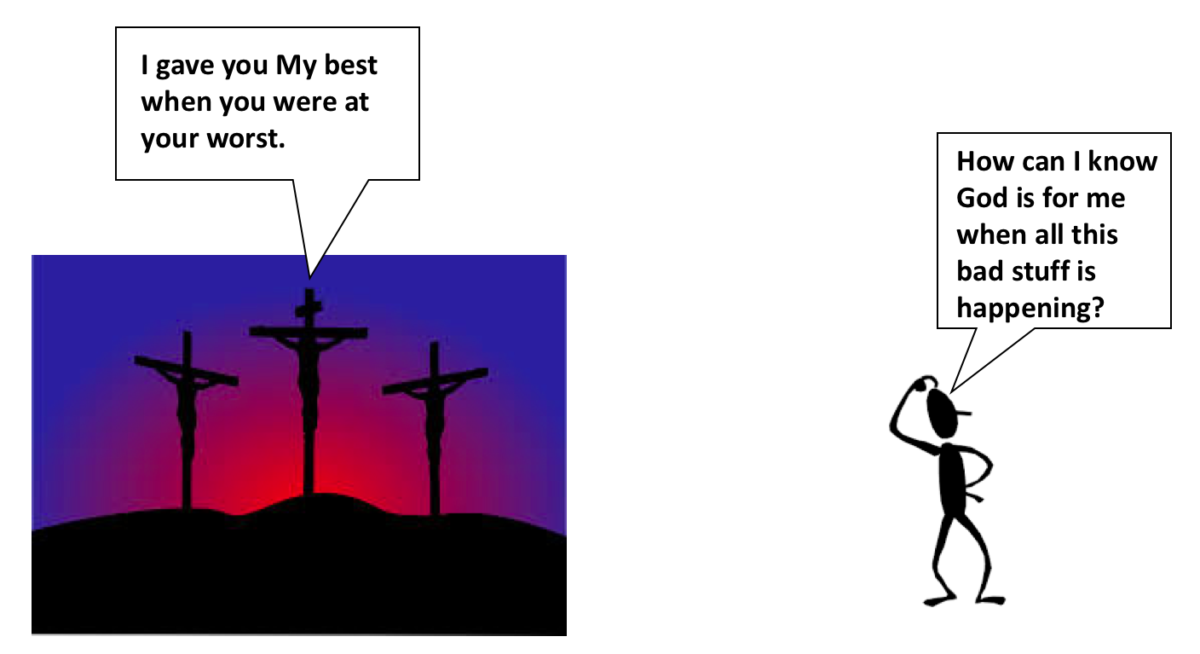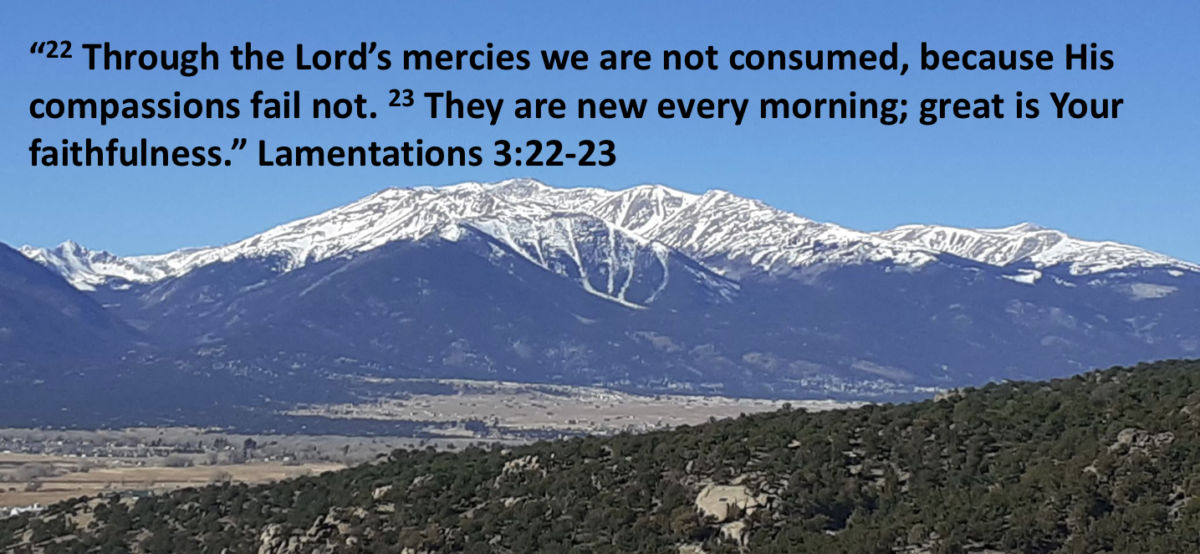As conditions worsen with regard to the coronavirus, many people are panicking. In large part, it seems to me that the media is highly responsible for a lot of fear-based decision making. God does not want His children to be driven by fear. He wants us to be driven by faith (cf. 2 Corinthians 5:7). With so many negative reports in the news today, it is challenging to maintain a life of faith. We may succumb to this bombardment of sensationalism and begin to doubt if God is really on our side. A lie that the enemy likes to whisper in a Christian’s ear when bad things are happening is, “God is against you.” Do you ever have thoughts like that? I certainly do.
The truth God has given us to combat this lie is found in Romans 8:31 where the apostle Paul writes: ““If God is for us [and He is], who can be against us” (8:31)? When we think someone is against us, God says, “Since I am for you (and no one is greater than Me), no one can successfully oppose you!” This includes the coronavirus, those in authority over us, family, friends, and even the devil and his demonic armies. As a preacher once said, “One plus God is always a majority.” Does it always feel this way? No. But our feelings do not always tell the truth.
You may respond, “But God, how do I know You are for me?” Paul writes, “He who did not spare His own Son, but delivered Him up for us all, how shall He not with Him also freely give us all things” (8:32)? When we were enemies of God, He gave us His own Son to die in our place (Romans 5:6-8). If God gave us His best when we were at our worst, how much more will He give us now that we are His beloved children!?!
God the Holy Spirit wants to apply these truths beyond our thoughts to the depths of our soul and spirit so that even when bad and painful things happen to us, we will still know deep down inside that God is for us. He is on our side. God is our biggest fan despite what we hear from our antagonists, including our own flesh. Therefore, there is no longer any reason to live in fear.
How do we replace this lie (and others) with God’s truth? Second Corinthians 10:3-5 instructs us. First, we must rely on God’s power, not our own. This battle for our minds is not “according to the flesh” (10:3). Nothing in our own flesh will help us to live victoriously or draw us closer to the Lord. Since the weapons of our warfare are “mighty in God,” then we must rely upon the power of the Holy Spirit to overcome Satan’s lies (10:4).
Second, recognize the erroneous thought. This battle is located in our minds because it involves “strongholds,” “arguments,” “knowledge,” and “every thought” (10:4-5). The word “strongholds” pictures a fortress with high walls and towers surrounded by a moat. God says these strongholds must be destroyed which means that God did not build them. A “stronghold” then, is a negative, destructive pattern of thinking that Satan has built in our minds through repetition, trauma, or circumstances. Satan does not put thoughts in our minds. He uses other people’s voices to insert thoughts in our mind. Ungodly thoughts come from us. Christ lives inside us and He does not give us these ungodly thoughts (Galatians 2:20). We will not get very far in this battle for our minds until we acknowledge these satanic strongholds.
Third, release the lie. “Casting down arguments and every high thing that exalts itself against the knowledge of God” (10:5a). Dismiss the lie and say, “This is not true, therefore, it is a lie and I am not going to pay attention to this. I am not going to entertain these thoughts that say God is against me.”
Fourth, reprogram your mind with the truth, “bringing every thought into captivity to the obedience of Christ” (10:5b). How do we bring every thought into captivity to the obedience of Christ? Jesus told us: “And you shall know the truth, and the truth shall make you free” (John 8:32). The devil is a liar by nature and he cannot handle the truth (John 6:44). This is why the devil tries to distract us from the truth so that it never gets deep down into the areas where he has a stronghold in our lives.
Persevere in this truth: “God is for me and not against me. The proof? He gave me His best on the cross when I was at my worst.” Review this truth daily. Say it out loud. Find a picture or image that represents this truth and review it throughout the day. This will help download the truth of God’s Word into your right brain where lies are attached to wounds from your past.
Neuroscience teaches us that it takes 2-5 years to develop new neurological pathways in our brain that contain the truth. So keep telling yourself the truth even when you don’t feel like it or see it so you can create and strengthen the new pathway in your brain. Our bodies create new brain cells the more we tell ourselves the truth. The more we tell ourselves the truth, the stronger the pathway becomes between brain cells. When we ignore the lie, the old pathway weakens – those brain cells containing Satan’s lies have less power and strength. You can continue to create new brain cells throughout your life by speaking the truth to yourself. When Paul said, “do not be conformed to this world, but be transformed by the renewing of your mind” (Rom. 12:2), perhaps he not only had a spiritual transformation in mind, but a physiological transformation in mind as well.
Prayer: Father God, by Your Spirit, please heal my soul of the wound that has the lie attached to it that says, “You are against me.” I cannot heal this wound myself. No doctor, pastor, or therapist can heal me. Only You, Lord God, can heal me. I will need Your grace to replace this lie with Your truth that says, “You are for me. And since no one is greater than You, no one can successfully oppose me.” When I doubt that You are for me, please remind me of the cross that says You gave me Your best when I was at my worst. And since You gave Your best to me when I was at my worst, how much more will You give me through Your Son Jesus now that I am Your beloved child through faith in Him!?! Thank You that I no longer need to live in fear. I can awaken each morning expectant of Your best for me through the Lord Jesus Christ. In His name I pray. Amen.






